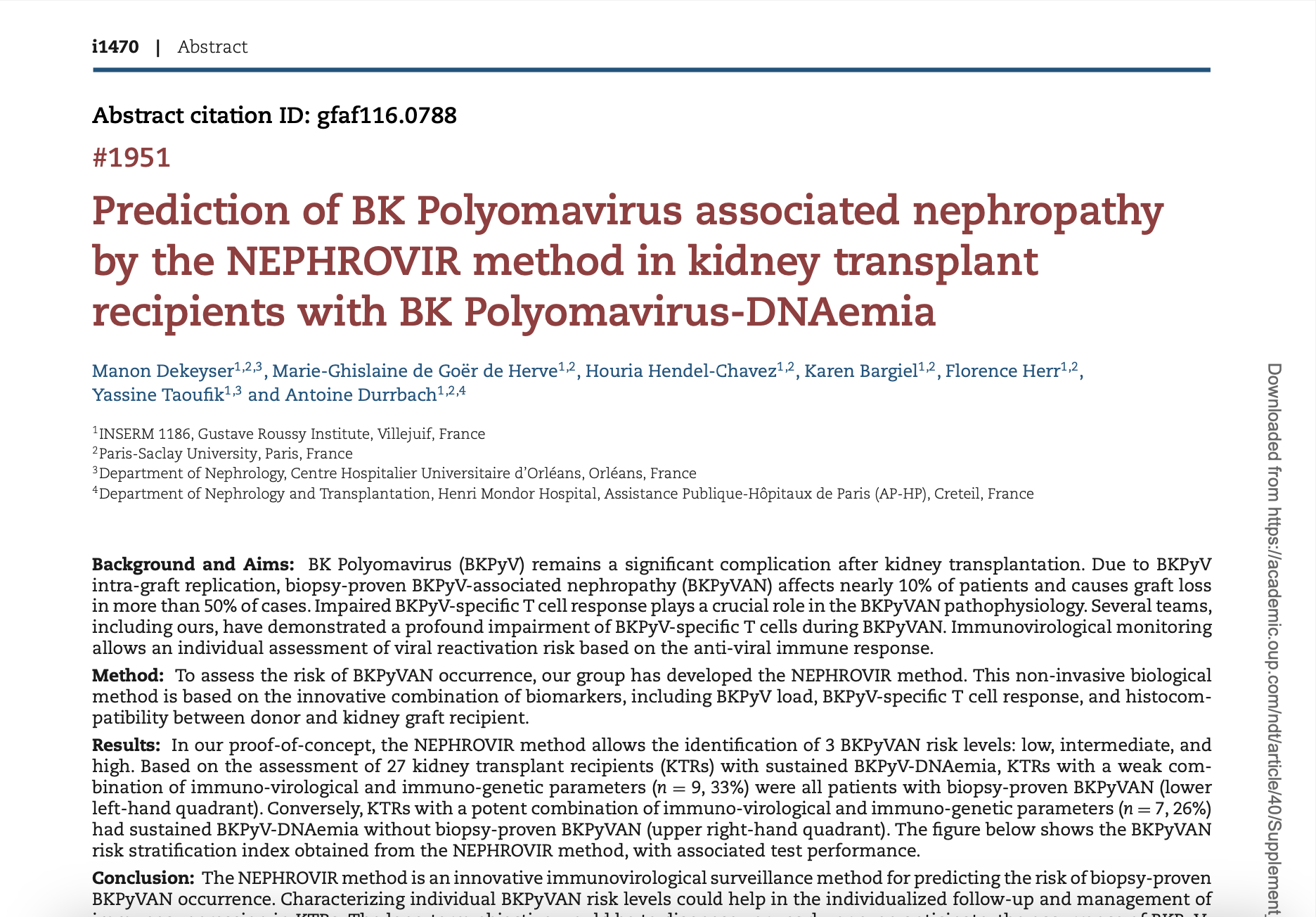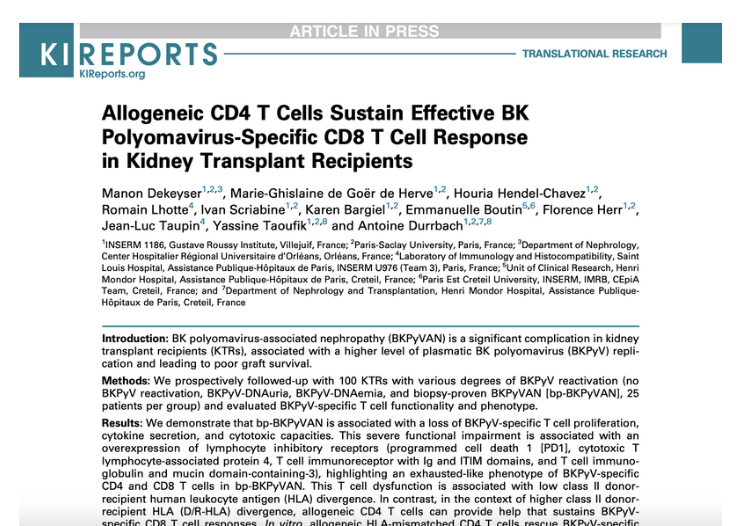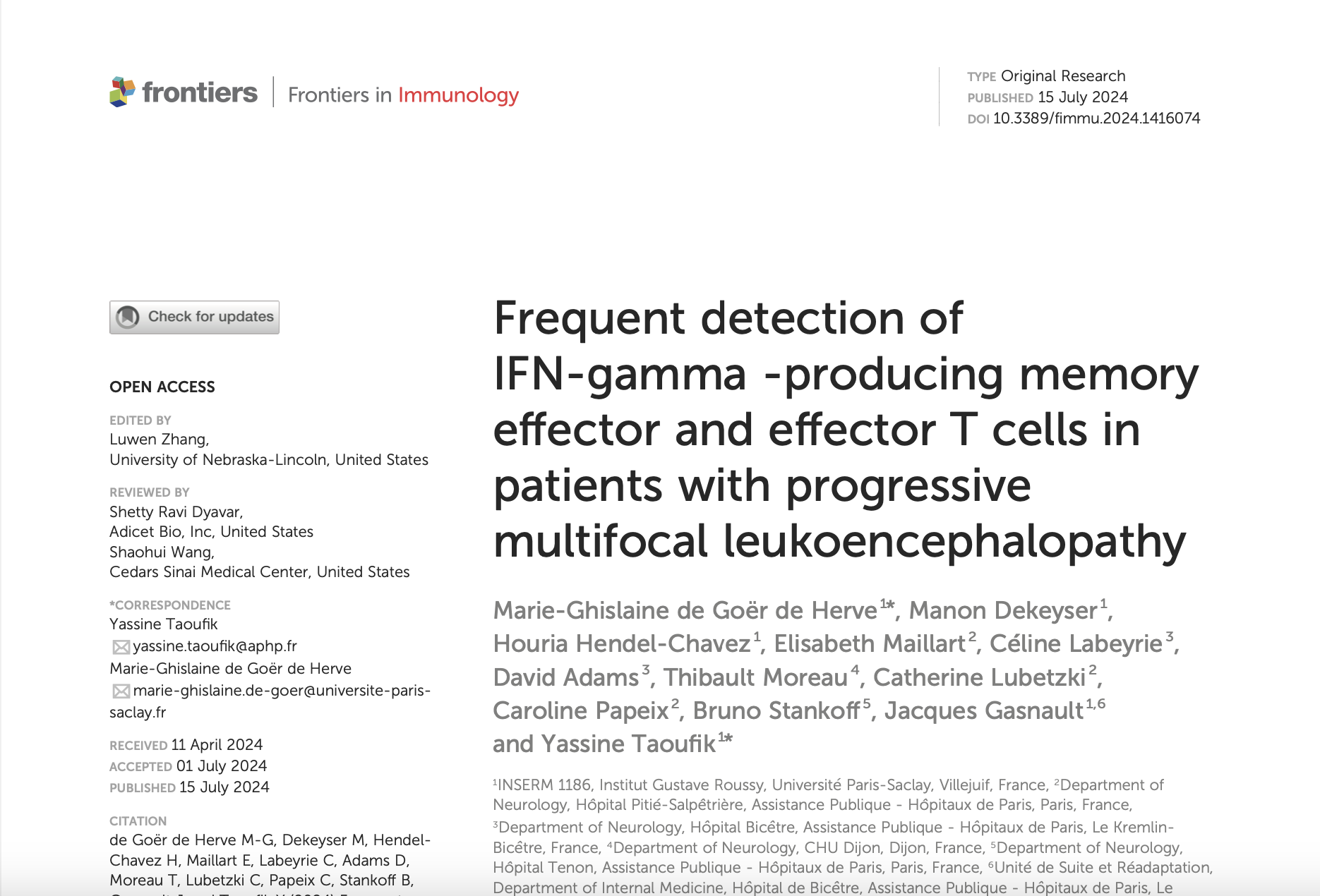Publications
-

Prediction of BK Polyomavirus associated nephropathy by the NEPHROVIR method in kidney transplant recipients with BK Polyomavirus-DNAemia
-

BKPyV-specIFIC T-cell Exhaustion in Kidney Transplant Recipients: Targeting Inhibitory Receptors Improves Their Functionality
-

Allogeneic CD4 T Cells Sustain Effective BK Polyomavirus-Specific CD8 T Cell Response in Kidney Transplant Recipients
-

Frequent detection of IFN-gamma -producing memory effector and effector T cells in patients with progressive multifocal leukoencephalopathy
